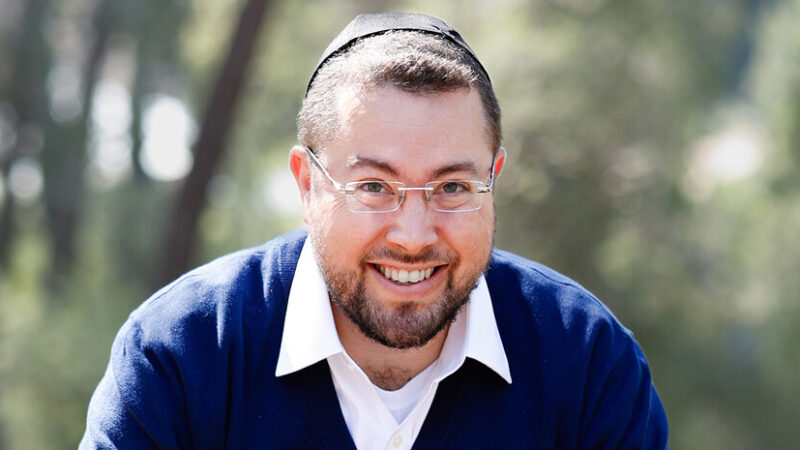Dear friends, some years ago a simple, yet powerful approach to working with difficult emotions emerged out of the intersection of the fields of mindfulness and psychotherapy. Come to be known as the “RAIN” technique (an acronym for the four steps of the process), many therapists, meditators, healers, and practitioners have found it to be incredibly helpful for on-the-spot relief and support during challenging times.
Here, friend and Sounds True author, Dr. Rick Hanson, describes the RAIN practice and the benefits is offers. This article was originally published by our friends at The Huffington Post. We hope you find it helpful and beneficial in your own life – and in the work you may be doing with others.
Let it R.A.I.N. – by Rick Hanson, PhD
When you’re young, the territory of the psyche is like a vast estate, with rolling hills, forests and plains, swamps and meadows. So many things can be experienced, expressed, wanted, and loved.
But as life goes along, most people pull back from major parts of their psyche. Perhaps a swamp of sadness was painful, or fumes of toxic wishes were alarming, or jumping exuberantly in a meadow of joy irritated a parent into a scolding. Or maybe you saw someone else get in trouble for feeling, saying, or doing something and you resolved, consciously or unconsciously, to Stay Away From That Place Forever.
In whatever way it happens, most of us end up by mid-adulthood living in the gate house, venturing out a bit, but lacking much sense of the whole estate, the great endowment of the whole psyche. Emotions are shut down, energetic and erotic wellsprings of vitality are capped, deep longings are set aside, sub-personalities are shackled and silenced, old pain and troubles are buried, the roots of reactions — hurt, anger, feelings of inadequacy — are veiled so we can’t get at them, and we live at odds with both Nature and our own nature.
Sure, the processes of the psyche need some regulation. Not all thoughts should be spoken, and not all desires should be acted upon! But if you suppress, disown, push away, recoil from, or deny major parts of yourself, then you feel cut off, alienated from yourself, lacking vital information about what is really going on inside, no longer at home in your own skin or your own mind — which feels bad, lowers effectiveness at home and work, fuels interpersonal issues, and contributes to health problems.
So what can we do? How can we reclaim, use, enjoy, and be at peace with our whole estate — without being overwhelmed by its occasional swamps and fumes?
This is where R.A.I.N. comes in.
How?
R.A.I.N. is an acronym developed by Michelle McDonald, a senior mindfulness teacher, to summarize a powerful way to expand self-awareness. (I’ve adapted it a bit below, and any flaws in the adaptation are my own, not Michelle’s.)
R = Recognize: Notice that you are experiencing something, such as irritation at the tone of voice used by your partner, child, or co-worker. Step back into observation rather than reaction. Without getting into story, simply name what is present, such as “annoyance,” “thoughts of being mistreated,” “body firing up,” “hurt,” “wanting to cry.”
A = Accept (Allow): Acknowledge that your experience is what it is, even if it’s unpleasant. Be with it without attempting to change it. Try to have self-compassion instead of self-criticism. Don’t add to the difficulty by being hard on yourself.
I = Investigate (Inquire): Try to find an attitude of interest, curiosity, and openness. Not detached intellectual analysis but a gently engaged exploration, often with a sense of tenderness or friendliness toward what it finds. Open to other aspects of the experience, such as softer feelings of hurt under the brittle armor of anger. It’s OK for your inquiry to be guided by a bit of insight into your own history and personality, but try to stay close to the raw experience and out of psychoanalyzing yourself.
N = Not-identify (Not-self): Have a feeling/thought/etc., instead of being it. Disentangle yourself from the various parts of the experience, knowing that they are small, fleeting aspects of the totality you are. See the streaming nature of sights, sounds, thoughts, and other contents of mind, arising and passing away due mainly to causes that have nothing to do with you, that are impersonal. Feel the contraction, stress, and pain that comes from claiming any part of this stream as “I,” or “me,” or “mine” — and sense the spaciousness and peace that comes when experiences simply flow.
R.A.I.N. and related practices of spacious awareness are fundamental to mental health, and always worth doing in their own right. Additionally, sometimes they alone enable painful or challenging contents of mind to dissipate and pass away.
But often it is not enough to simply be with the mind, even in as profound a way as R.A.I.N. Then we need to work with the mind, by reducing what’s negative and increasing what’s positive. (It’s also necessary to work with the mind to build up the inner resources needed to be with it; being with and working with the mind are not at odds with each other as some say, but in fact support each other.)
And whatever ways we work with the garden of the mind — pulling weeds and planting flowers — will be more successful after it R.A.I.N.s.
Rick Hanson, Ph.D., is a neuropsychologist and author of Hardwiring Happiness: The New Brain Science of Contentment, Calm, and Confidence (from Random House in October, 2013; in 4 languages), Buddha’s Brain: The Practical Neuroscience of Happiness, Love, and Wisdom (New Harbinger; in 24 languages), Just One Thing: Developing a Buddha Brain One Simple Practice at a Time (New Harbinger; in 12 languages), and Mother Nurture: A Mother’s Guide to Health in Body, Mind, and Intimate Relationships(Penguin). Founder of the Wellspring Institute for Neuroscience and Contemplative Wisdom and an Affiliate of the Greater Good Science Center at UC Berkeley, he’s been an invited speaker at Oxford, Stanford, and Harvard, and taught in meditation centers worldwide. A summa cum laude graduate of UCLA, his work has been featured on the BBC, NPR, CBC, FoxBusiness, Consumer Reports Health, U.S. News and World Report,and O Magazine and he has several audio programs with Sounds True. His weekly e-newsletter – Just One Thing – has over 91,000 subscribers, and also appears on Huffington Post, Psychology Today, and other major websites.










